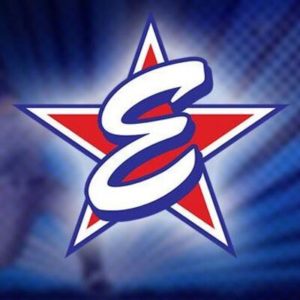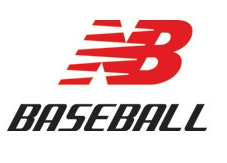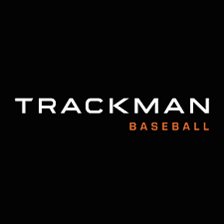 US Elite Baseball National Director Mark Helsel has a saying he likes to use with his kids, one he borrowed from NorCal Baseball and Program 15 Northern California Regional Director Rob Bruno.
US Elite Baseball National Director Mark Helsel has a saying he likes to use with his kids, one he borrowed from NorCal Baseball and Program 15 Northern California Regional Director Rob Bruno.
“You’re going be a human being a lot longer than you’re going to be a baseball player.”
Yes, Helsel’s program has sent over 200 kids to Division 1 schools with scholarships over the last six years.
Yes, Helsel has several players in pro ball like Max McDowell (Brewers), John Sansone (Reds) and Travis Blankenhorn (Twins) who will soon, hopefully, give him his first major-league program alum.
But first and foremost for Helsel and US Elite Baseball, which serves as P15’s Mid Atlantic Regional Director program, it’s about developing good young men. After all, you’re going to be a human being a lot longer than you’re going to be a baseball player.
“When you tell that to a kid, the point is, ‘Who are you becoming in the process,’” Helsel said.
“We know it’s important to you, all of you want to play in the big leagues and all of you think baseball is everything in your life, but you’re 16. When you’re 22 and the game is done for you – and I’d love to say you can play until you’re 35, but at 22, if you play college baseball, most likely that’s the end of your career — who did you become from 14 years old to, in our program, 17? When we hold them accountable to all these disciplines, you can apply all of them in real life. These are life lessons we’re teaching them, and that’s why it’s so important. We want them to be successful people, not just good baseball players.”
Of course, the baseball side plays a big role in things as well, and US Elite is certainly no slouch there. Helsel started the program ten years ago when his son, Christian, told him he wanted to play in the SEC.
“That began a pretty amazing journey, and some amazing things happened along the way,” Helsel said.
“I met Rob Bruno; he’s still my mentor to this day. It was a serendipitous meeting out in Arizona, and it led to my son playing for him. When that happened, my son got exposed to playing with high level kids…six of the kids on the 14U team my son played for are in pro ball right now. But I also got exposed to life at the top of the food chain, and Rob was instrumental in helping me get into the world of making connections and credibility.”
Over the years, Helsel has been meticulous in identifying who his program should consist of, what they do and why they do it.
“In a nutshell, the thing that I think separates us is we’re still a small program focused exclusively on quality. We only have nine teams this year, and every one of them, the kids are all hand-picked from a wide geographic area. The way we’re picking them is their makeup, their ability, their parents…we have a lot of discipline built into the program, and we’re recruiting these kids and telling them they have the ability to play at a high level based on our evaluations. Now, we’re going to groom them to that high level. That’s what we do.”
But, at the end of the day, that success can all be traced to finding the right mix of off-field makeup while cultivating on-field talent. “Uncommon standards” is more than just a lip service slogan on their website.
“Last year, we played in the Perfect Game World Series, our 16 year-olds, and we made it to the semis and took third…we beat some great programs; we out-hustled, out-energized and many times outclassed the other programs because we don’t have any entitlement in our program,” Helsel said.
“There’s no prima donna syndrome going on. I could care less if a kid throws 94 and could win a national championship; if he’s late, he’s not playing. If he’s a jerk, he’s not playing. We built that into the program, and I think that helps us with college coaches. We have some kids playing pro ball now, but we’re developing character and makeup as much as how good of a baseball player they are.”
Helsel’s philosophies align perfectly with those of Program 15, and P15 and New Balance Future Stars Series CEO Jeremy Booth was eager to connect the two sides.
“When you think of US Elite, you think of integrity and values,” Booth said.
“Yes, they have good players and have done an excellent job of advancing the players who play for them and the game as a whole. But the vision Mark has to grow his players and leave it better than he found it, that’s what made this easy for me. Excellent people with a big foundation in and hunger to help the game, that’s what you think of when the name US Elite is mentioned. Mark’s passion is a separator, and I look forward to seeing them in Houston this summer and working together for the long haul.”
The feeling was mutual for Helsel.
“Jeremy’s a great guy, and he made a great first impression on me,” Helsel said.
“I love his background; where he comes from is a big deal. I love the work that he’s established, so when I think of Program 15, I think of a network of people. And I love their vision. Jeremy has definitely made it clear that they feel like there’s a void, and he’s a man on a mission to fill the void. I like to be around people who are on missions, and I feel maybe he saw a lot of that in me, because I’m on a mission too. We are going to be known as the first program to really, seriously incorporate personal development into baseball…Jeremy and I, we’re two guys on a mission, and those missions are aligned with each other. It was an easy decision for me.”
- ASHMORE: 5 Underclass Elite hitting standouts - October 22, 2025
- ASHMORE: 5 Main Event hitting standouts - October 15, 2025
- INVITE: Chase Austin, Underclass Elite - October 1, 2025












